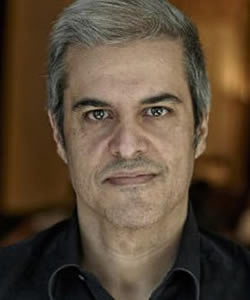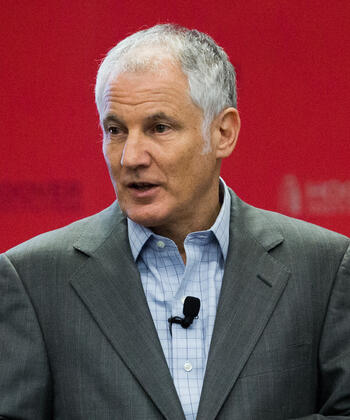Norman Farrell will deliver this year's Annual Lecture on International Justice in a talk titled, "International Criminal Law, its Legal Framework and its Application in Ukraine."
The Center for Human Rights and International Justice's Annual Lecture on International Justice provides a space for highly accomplished figures in the international justice sphere to discuss meta-level topics, trends and techniques. These events are generously supported by Mr. John Rough.
ABOUT THE SPEAKER
Norman Farrell is an international Prosecutor with extensive experience in leading and managing large-scale criminal investigations or prosecutions of war crimes, crimes against humanity, genocide and terrorist acts. He has prosecuted cases arising from serious international crimes in the Former Yugoslavia, Rwanda and Lebanon. Mr. Farrell’s areas of expertise include international humanitarian law, international criminal law and advocacy before international criminal tribunals.
Mr. Farrell was appointed the Prosecutor of the Special Tribunal for Lebanon in March 2012. Prior to this appointment, Mr Farrell was Deputy Prosecutor since 2008 at the International Criminal Tribunal for the former Yugoslavia (ICTY). Mr. Farrell held positions in the Office of the Prosecutor at the ICTY from 1999-2008 that include the Prosecutor’s Legal Director, Senior Appeals Counsel and Head of the Appeals Section. He represented, on appeal, the Office of the Prosecutor in a number of cases before the ICTY Appeals Chamber including the first prosecution for genocide in Prosecutor vs. Kristic.
From 1999-2003 he was, simultaneously, Prosecution Appeals Counsel on cases before the International Criminal Tribunal for Rwanda (ICTR) on genocide and violations of international humanitarian law in Rwanda. From 2002-2003 he was the Head of the Appeals Section of the Office of the Prosecutor at the ICTR.
From 1996-1999, Mr. Farrell worked for the International Committee of the Red Cross (ICRC) in Bosnia as a delegate, subsequently in Ethiopia, Kenya and Tanzania as the Regional Legal Advisor. In 1998, he was Legal Advisor on international humanitarian law and international criminal law for the ICRC in Geneva, Switzerland.
Before his involvement in international law, Mr Farrell was Crown Counsel at the Crown Law Office - Criminal in Toronto, Canada and has appeared as Counsel before the Ontario Court of Appeal and Supreme Court of Canada.
Mr. Farrell holds a Master of Laws (LLM) from Columbia University in New York, and a Bachelor of Laws (LLB) as well as B.A (Hons) from Queens University, Kingston, Ontario. He was admitted to the Law Society of Ontario in 1988.
This event is co-sponsored by the Center for Human Rights and International Justice, CREEES Center for Russian, East European & Eurasian Studies, and the Center on Democracy, Development and the Rule of Law.




















